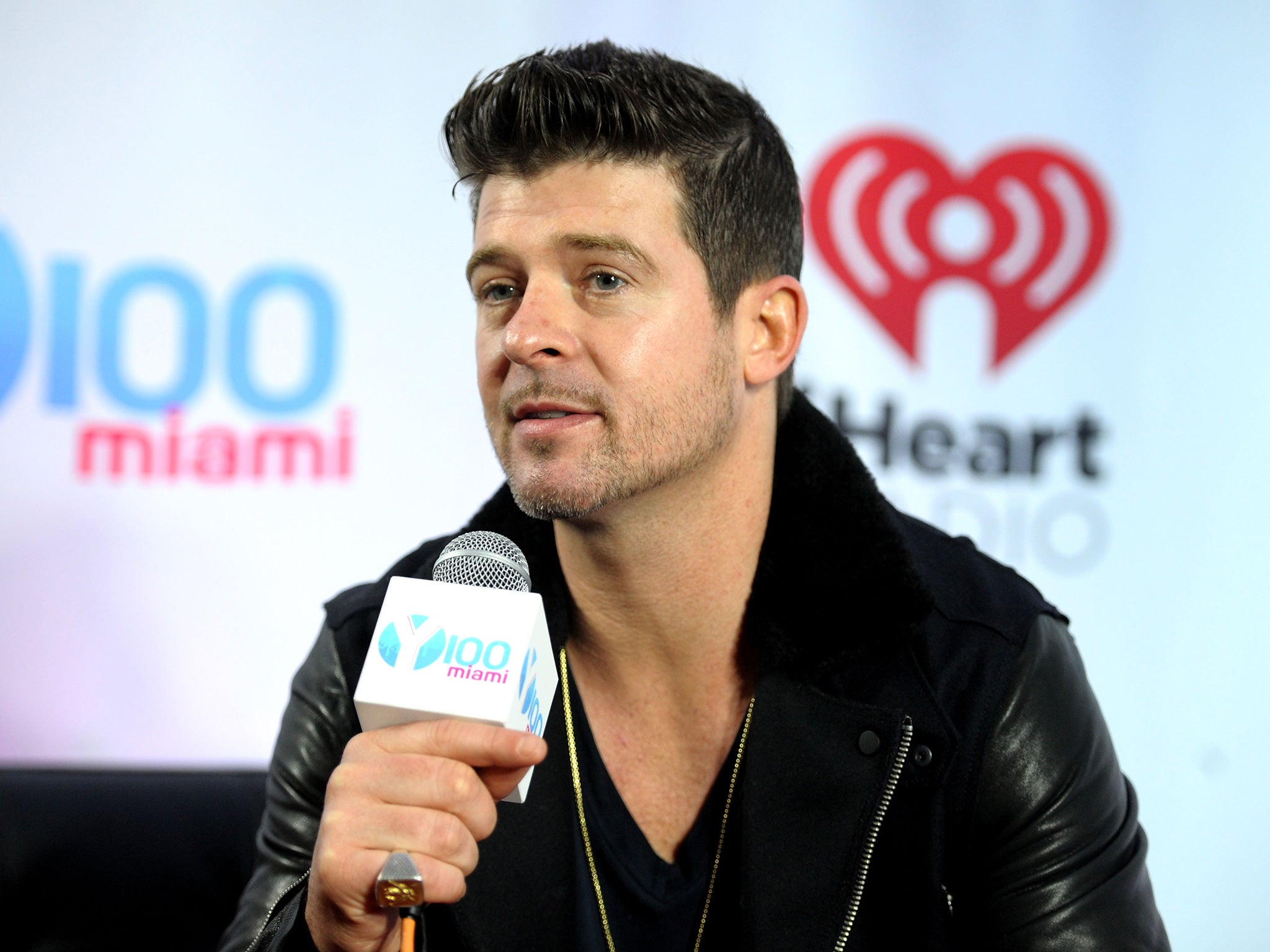Blurred Lines deposition: Robin Thicke admits to being 'high and drunk' during every interview he gave in 2013
Footage of the singer's testimonial from 2014 has been released by a federal judge

Your support helps us to tell the story
From reproductive rights to climate change to Big Tech, The Independent is on the ground when the story is developing. Whether it's investigating the financials of Elon Musk's pro-Trump PAC or producing our latest documentary, 'The A Word', which shines a light on the American women fighting for reproductive rights, we know how important it is to parse out the facts from the messaging.
At such a critical moment in US history, we need reporters on the ground. Your donation allows us to keep sending journalists to speak to both sides of the story.
The Independent is trusted by Americans across the entire political spectrum. And unlike many other quality news outlets, we choose not to lock Americans out of our reporting and analysis with paywalls. We believe quality journalism should be available to everyone, paid for by those who can afford it.
Your support makes all the difference.Robin Thicke has admitted that he was 'high or drunk' during every interview he gave in 2013 as part of a court case dealing with plagiarism of his hit song "Blurred Lines".
Thicke’s fall from grace has been well documented, but accusations that "Blurred Lines", which features Pharrell Williams and rapper T.I, is a rip-off of Marvin Gaye’s "Got To Give It Up" have seen the trio face intense scrutiny over how they came up with the song.
Video footage of Thicke dismissing his sobriety in 2014 has now been unsealed by a federal judge.
“With all due respect, I was high and drunk every time I did an interview last year,” says Thicke, when asked about his sobriety during interviews with Oprah Winfrey and VH1.
In 2013, Williams laughed off the comparison, claiming the songs were in a different key, which has led to claims he doesn’t know how to read music, while Thicke claimed last year he was “high on vicodin” when he was in the studio in an attempt to question his own involvement in the song that made him so much money.
The plagiarism case began when Gaye’s children sued Thicke and Williams, saying their song infringed the copyright of their father's original composition. The singers denied copying Gaye’s music.
Gaye’s family were later awarded $7.3m (£4.900,000) in damages, including $3.4m (£2,200,000) in profits that Thicke and Williams were found to have derived from the infringement.
Join our commenting forum
Join thought-provoking conversations, follow other Independent readers and see their replies
Comments